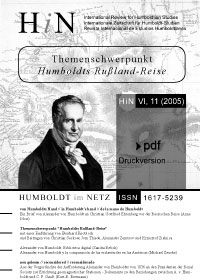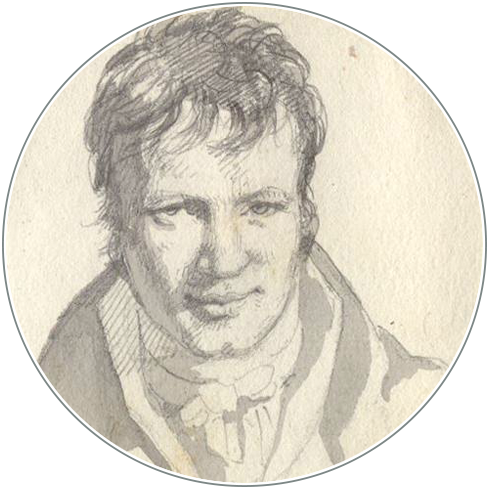Alexander von Humboldt y la comparación de las esclavitudes en las Américas
DOI :
https://doi.org/10.18443/69Mots-clés :
1804, Kuba-Tagebuch, SklavereiRésumé
Resumen
Este artículo tiene dos objetivos principales. Ambos están motivados por el hallazgo del diario humboldtiano sobre Cuba en 1804, hasta ahora desconocido (en la Biblioteka Jagiellonska Kraków por Ulrike Leitner). Primero, el artículo pretende exponer la génesis tanto discontinuada como coherente de la enemistad humboldtiana con la esclavitud (que culmina en cierto grado en este “nuevo” diario y que configura in nuce el “Ensayo sobre Cuba” del propio Humboldt). Segundo, el artículo presenta la – a nivel de la historia de las sciencias – sensación, que Humboldt empezó a aplicar sistemáticamente métodos de comparación scientífica a las condiciones sociales, históricas y socio-económicas de la esclavitud, cuando en 1804 supo en Veracruz o La Habana de la proclamación del estado “Haity”. Estos dos reconocimientos del artículo presente cambian profundamente nuestros conocimientos de la relación política de Humboldt en cuanto a dos grupos mayores de la población (partes de la élite criolla que planificó fundar “una república blanca” a manera de la revolución francesa de 1789 y el grupo o la “casta” de los llamados “pardos”) en “el umbral de la revolución de Independencia”.
Zusammenfassung
Der Artikel verfolgt zwei Ziele, die beide mit dem Fund des bisher unbekannten humboldtschen Kuba-Tagebuchs von 1804 (in der Biblioteka Jagiellonska Kraków durch Ulrike Leitner) zusammenhängen. Einmal will er die zwar diskontinuierliche, aber zusammenhängende Entwicklung von Humboldts Sklavereibild darlegen (die im Tagebuch von 1804 in gewissem Sinne kulminiert und in nuce den Essay über Kuba bildet) und zum zweiten die wissenschaftsgeschichtliche Sensation, dass Humboldt wesentliche Elemente der Methode des Vergleichs systematisch auf soziale, historische und sozioökonomische Verhältnisse der Sklaverei anzuwenden begann, als er Anfang 1804 in Veracruz oder Havanna von der Proklamation des Staates „Haity“ auf der Insel Santo Domingo hörte. Diese beiden Erkenntnisse ändern die Einschätzung von Humboldts politischem Verhältnis zu zwei Gruppen der spanisch-amerikanischen Bevölkerung (die Teile der kreolische Elite, die plante „eine weiße Republik“ nach dem Vorbild Frankreichs zu gründen, und die Gruppe oder „Kaste“ der „pardos“) am „Vorabend der Unabhängigkeitsrevolution“.
Abstract
This article has two main aims. Both are motivated by the Humboldtian diary about Cuba in 1804, unknown until today (found by Ulrike Leitner in the Biblioteka Jagiellonska Kraków). First, the article will present the in fact discontinuous but coherent development of the Humboldtian image of slavery in Spanish America (which is culminating to some extent in the diary and builds in nuce what later will become the “Essay on the Island of Cuba”). Second, the article presents the sensation in history of science, that Humboldt starts to apply systematically main elements of scientific method of comparison on social, historical and socioeconomic themes of slavery, when he heard of the proclamation of the new state of “Haity” in Veracruz or Havana in 1804. These two findings (and the diary itself) are changing profoundly our knowledge about Humboldt’s political relationship with two larger groups of the population of Spanish America (the parts of the Creole elite who were planning to found “a white republic”, following the French model and the very large group, or caste, of the “pardos”) on the “Eve of the Independence Movement”.
Téléchargements
Comment citer
Numéro
Rubrique
Licence
(c) Tous droits réservés Michael Zeuske 2005

Ce travail est disponible sous licence Creative Commons Attribution - Pas d’Utilisation Commerciale 4.0 International.
Les droits des articles envoyés restent la propriété de leurs auteurs et sont publiées sous la licence Creative Commons-Lizenz (CC BY-NC 4.0). Tous les auteurs publiant dans le HiN doivent accepter ce modèle de licence.
Les auteurs doivent eux-mêmes s’occuper de l’obtention des droits d’auteur pour les images utilisées.
Les divers éléments de la mise en page et du design de la revue sont protégés et ne peuvent être récupérés et réutilisés dans d’autres publications sans autorisation préalable de la part de HiN.










